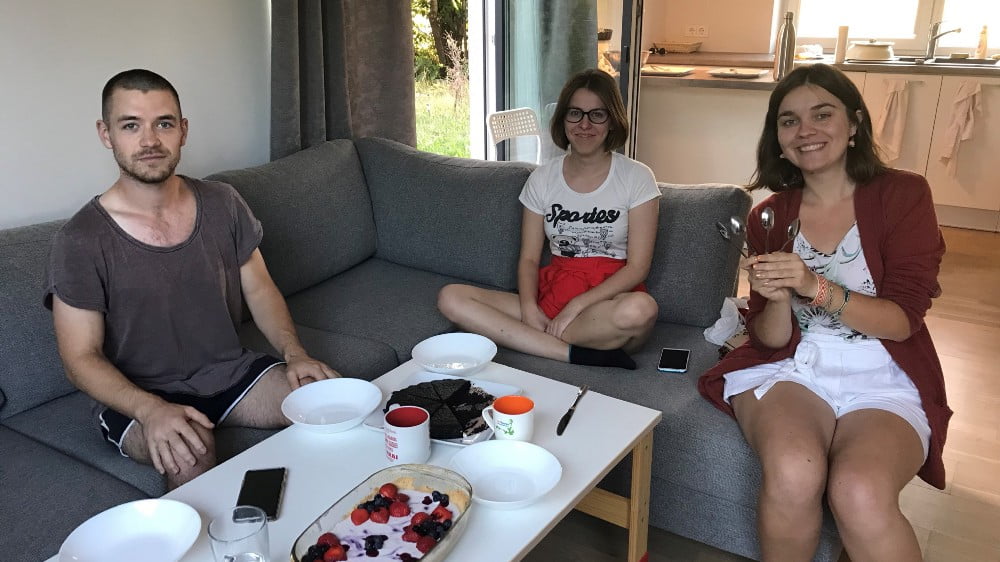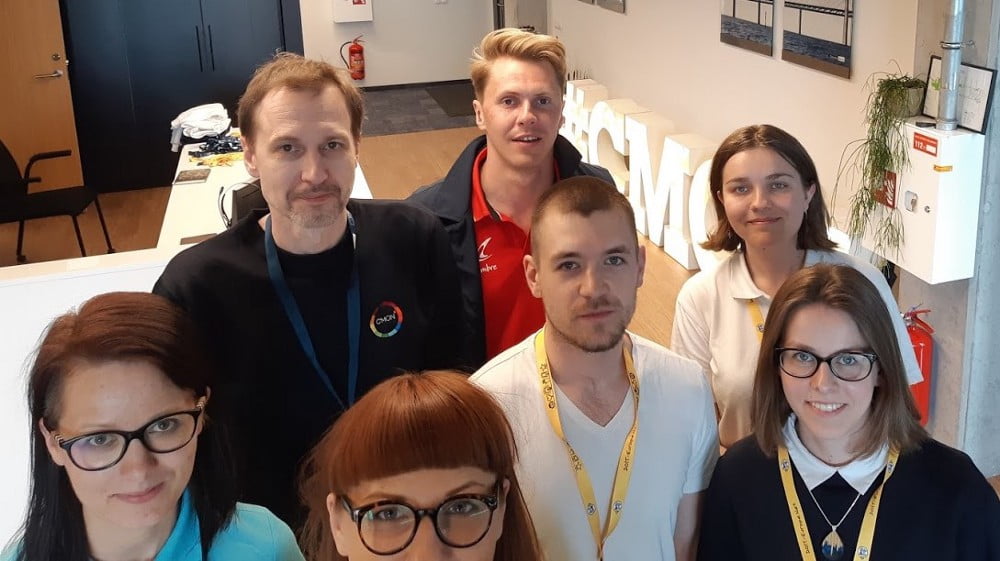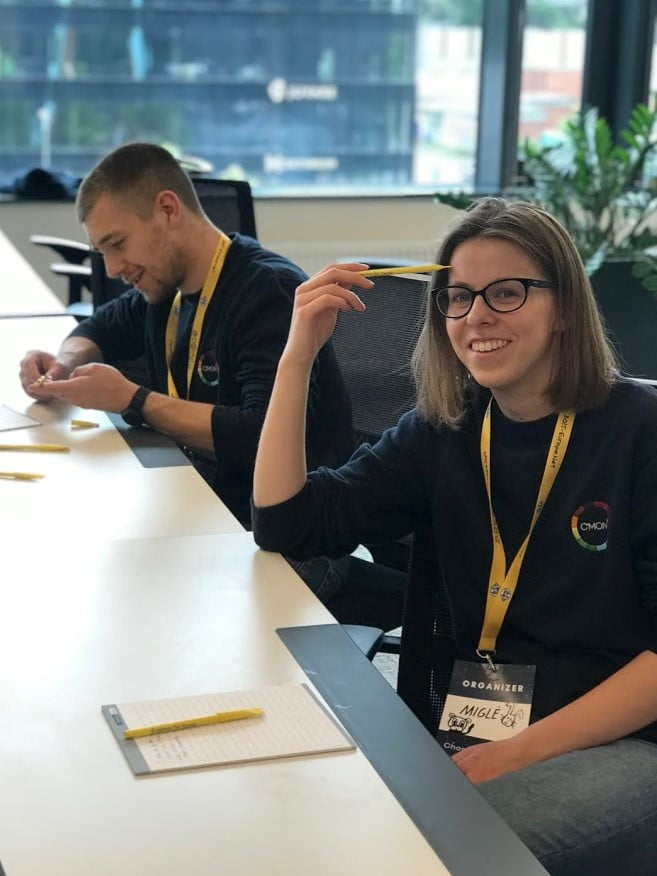
Volunteering is a great way to kickstart a student’s career — in Kaunas, Lithuania
Summer is the time to make the most of your future career. According to Miglė Jonaitytė, a volunteer student at the social innovation program ChangeMakers’ON, meaningful activities motivate, provide you with a professional experience and help broaden a network which may very well turn out to be essential in your career.
We had a straight talk Without further ado, let’s jump straight into the interview.
You‘ve been volunteering for around six months in the social innovation and entrepreneurship program ChangeMakers‘ON. What kind of tasks are you responsible for, what kind of duties do you have to complete while volunteering?
Volunteering at ChangeMakers’ON gave me a lot of international experience: I got the chance to meet foreigners, learned more about organizing international events. Thibault and Cécile, from France, are taking part in the program as well. My main duty is to help them get to know Lithuanian culture better and to do information research. While volunteering, I realized that my perception of society had broadened. I had an opportunity to survey teens about bullying and the results showed that some minorities don’t feel like a part of society, which saddened me.
In your opinion, should students volunteer? Is it worth the time and effort to do so?
I believe that everyone should at least try to volunteer. Once, I had to share my volunteering experience with teachers and students from Priekulė. I liked one statement that a teacher made. She stated that volunteering is a selfish act : doing good for others is a mean to start feeling better yourself. Usually, young people don’t feel like they belong anywhere, that’s why volunteering is a great way to find a place where you fit in. It’s a great way to learn about yourself. Every volunteering program is unique and whichever program a person takes part in will give a lot of new experiences.
Why have you chosen to volunteer in ChangeMakers’ON? What is your connection with social innovations and startups?
At the time, while I was searching for a suitable program to volunteer in, there weren’t any programs that had to do with social businesses. What’s more, I wanted to improve my computer literacy. That’s the main reasons why I have chosen ChangeMakers’ON. I had only but a small connection with social innovations at the start of my volunteering.
ChangeMakers’ON was a great way to learn more about startups. Right now, I admire people that have the guts to start a social business because it requires a lot of time and effort.
Volunteering at the heart of the ChangeMakers’ON program led you to meet many new people, and among them, foreigners of various professions. Did you make new friends? What do foreigners think of Lithuania?
Every foreigner I’ve had a chance to talk to perceive Lithuania differently. Some enjoy Lithuania, its culture and traditions. Others are tougher critics and show disappointment. According to them, Lithuanian people aren’t very open or sociable and they tend to look angry. The first time I went on a trip around Kaunas with Thibault and Cécile, they found surprising how empty the town center was in the evening. Every culture is different and what may be normal to us, may not be for others. I got to know Thibault and Cécile very well, so it’ll be sad when they’ll have to leave. We did a lot of things together: not only taking part in ChangeMakers’ON, but we also went to basketball matches and attended various celebrations. For every outing I had to organise, I tried looking up informations about Lithuania that would be interesting not only for a foreigner but for me as a native as well. While searching for this information, I started gaining interest in my country’s customs and its history.
You spent quite some time among social innovators. Has it ever led you to consider generating your own ideas in technology and social innovation?
I have many ideas and would like to create a business that’s useful for society in the future. I’ll also participate in the Erasmus + program as a leader, so, at the end of autumn, I’ll go to Sweden to learn more about social entrepreneurship.
What social problems have you noticed in your town, Kaunas? What kind of social initiatives would help to solve these problems in your opinion?
The most noticeable issue is ecological : people’s irresponsibility not sorting trash or littering forest areas.
A startup that’s trying to make a change in these problems is “Kūrybos kampas 360°”, they are promoting a healthier, cleaner environment. Their organised hike “Už švarią Lietuvą” ( Eng. “For cleaner Lithuania”) showcased that littering is still a big problem in our society. Another social problem is the high consumption of depressants and narcotics. It’s a shame that many young people believe alcohol is a necessary way to escape daily life problems or have conversations with new people. Several organisations try to prevent this problem. Open Youth Centre “Vartai” (Eng “Gates”) deals with teenagers and Lithuanian youth union “Žingsnis” (Eng. “Step”) promotes having a lifestyle without intoxicants. The last social problem I notice in my hometown is the lack of commonality, a program “Fluxus labas!” (Eng. “Fluxus Hi!) tries to bring together neighbors and strangers alike to have a closer, friendlier community.
How do students get involved in social activities in Kaunas? Are teachers raising awareness about the environment they live in and how they could contribute to its improvement? For example, recycling, discussing gender equality, etc.
In my school, students are encouraged to contribute to different kinds of shelters. They take part in campaigns like visiting retirement homes for instance, making Christmas cards for old people. Annually, every spring, 9–11th graders clean the territory around my school. I hope this cleanup makes them realize how important it is not to litter your surroundings. In my school, teachers try their best not to waste paper : they recycle and remind their students to use electricity responsibly. During lessons, students discuss topics such as pollution or discrimination based on sexual orientation. In English lessons, while talking, we usually bring up social problems that matter to us.
In autumn you’re planning to study law at Vytautas Magnus University. What skills and knowledge will you use in your profession that you gained while volunteering?
One of the most valuable skills that I will use is bravely talking to anyone. Being able to converse with different kinds of people is always useful. Furthermore, I improved my English proficiency, which will turn out handy when learning international law. Lastly, my computer literacy got better, which is very important as there is no avoiding computers in modern society.
Thank you, Miglė, for sharing this amazing story with us! Best of luck in your future works!
Are you interested in becoming a volunteer and meeting ChangeMakers’ON experts too? — Click here.



